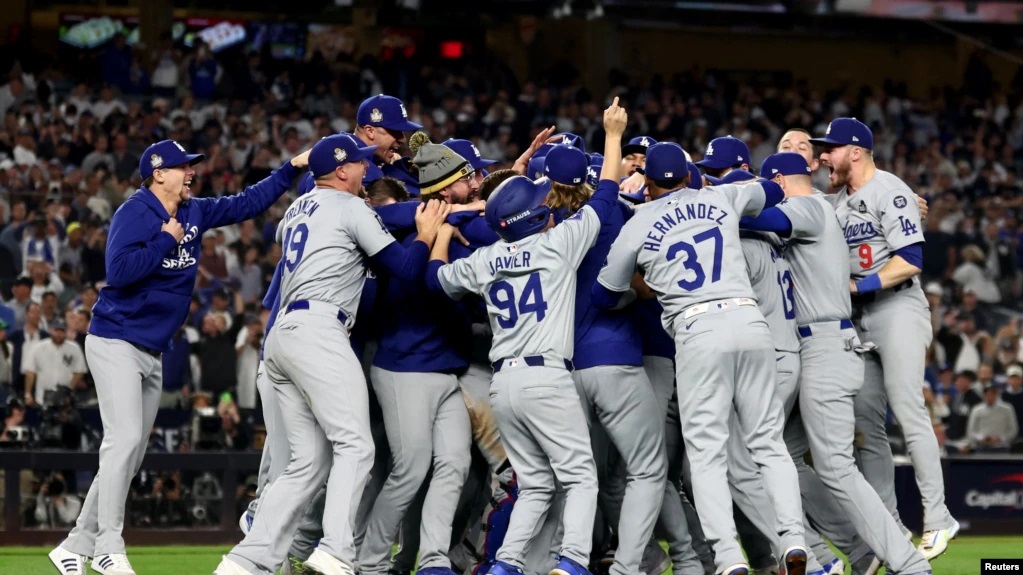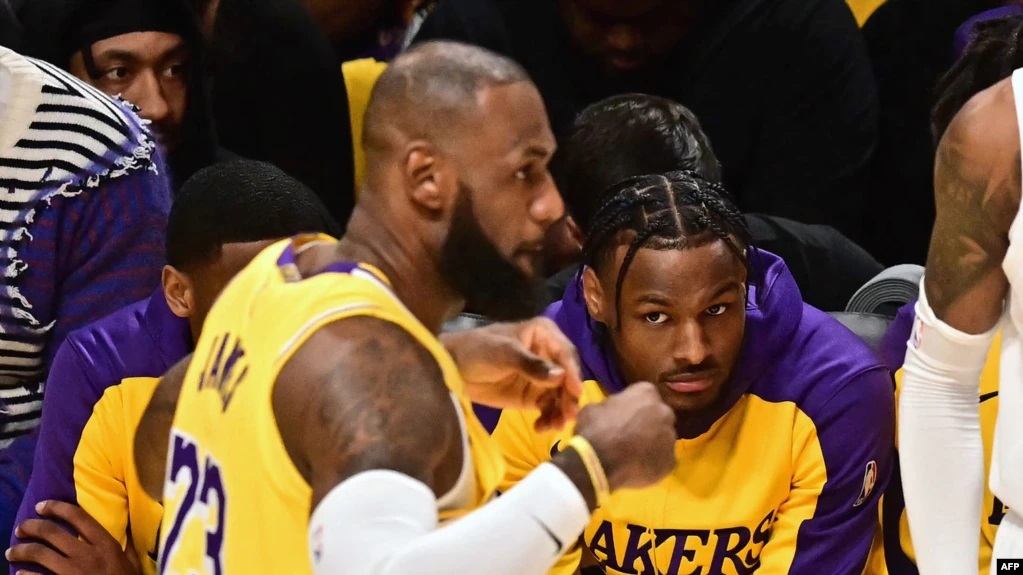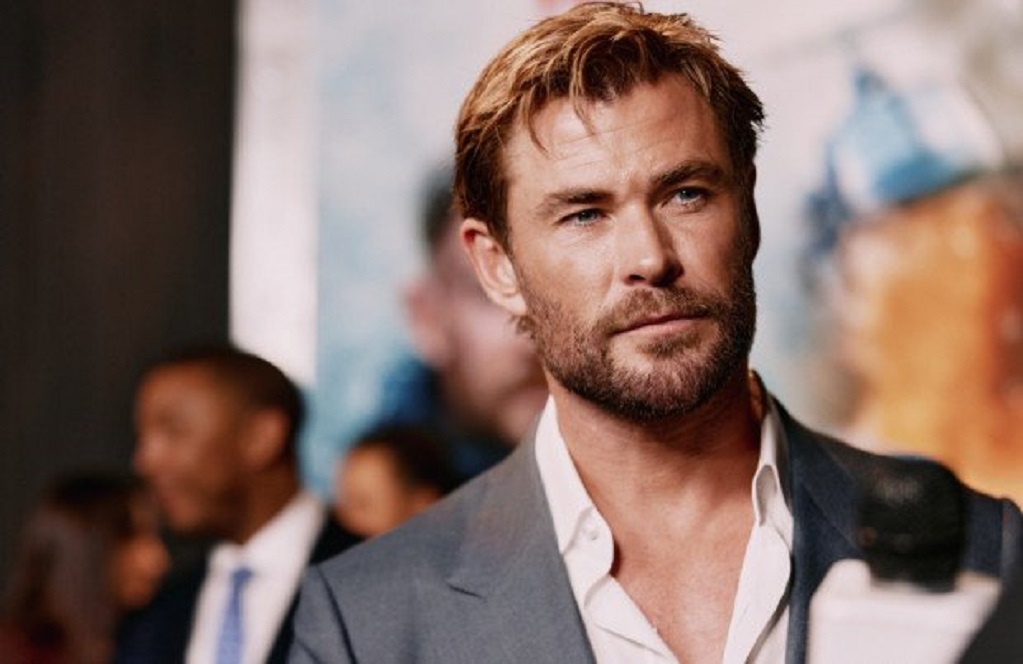In Push for More Black US Players, MLB Hopes Results Are on the Horizon
Written by worldOneFm on June 25, 2023
Zion Rose is well aware that the percentage of Black U.S. players in Major League Baseball has been on the decline for decades.
But the 18-year-old catcher from Chicago, still sweaty from a workout during MLB’s Draft Combine this week at Chase Field in Phoenix, said he’s got some news: That’s not going to be the case for long.
“You’ll see,” he said. “We’re starting to come through.”
Rose was one of more than 300 players of all backgrounds in Phoenix this week to take part in the combine, which featured workouts, interviews and games in an effort to showcase some of the game’s best amateur talent at the high school and college levels before July’s draft. MLB said that approximately 15% of the players in the showcase were Black.
The hope is that the next Aaron Judge, Mookie Betts or Andrew McCutchen will be in that bunch. Possibly several.
A recent study from The Institute for Diversity and Ethics in Sport at Central Florida found Black U.S. players represented just 6.2% of players on MLB opening day rosters, down from last year’s previous record low of 7.2%. Both figures are the lowest recorded in the study since it began in 1991, when 18% of players were Black. Last year’s World Series was the first since 1950 without a U.S.-born Black player.
There are tangible reasons to believe the percentage of Black players might be on the upswing soon.
Four of the first five players picked in last summer’s amateur draft were Black for the first time ever. Those four were among the hundreds who had participated in diversity initiatives such as the MLB Youth Academy, DREAM Series and the Reviving Baseball in Inner Cities (RBI) program. MLB has also pledged $150 million in a 10-year partnership with the Players Alliance. The nonprofit organization of current and former players works to increase Black involvement at all levels.
Many of those programs started several years ago, and the younger participants are starting to hit draft-eligible age.
Rose is among them. He said the diversity initiatives didn’t just provide exposure to scouts, but also opened a vital pipeline for minority players to connect, share experiences and see faces similar to their own. The catcher said that Black former MLB players and coaches were also in attendance at many of the tournaments, providing role models. He cited Reds pitcher Hunter Greene as a big influence.
“I met most of my best friends at those camps,” Rose said. “Just being able to see people your color playing the game, being able to relate to them, that’s been important.”
Homer Bush Jr. — whose dad played in the big leagues for seven seasons for the Blue Jays, Yankees and Marlins — said baseball is also doing a better job of being social media savvy. The outfielder just finished his junior season in college at Grand Canyon.
Bush said its important that baseball portrays itself as a fun sport. Baseball’s trend of elaborate celebrations for home runs and big hits — like Pittsburgh’s swashbuckling routine — is a good start.
He also said he believes having more Black players in the big leagues should create a snowball effect that brings more young minority players into the game.
“I could talk about it for hours,” Bush said. “But I feel like one of the biggest things is just representation. I had a dad who played in the big leagues, so I had someone to look up to and admire. But most guys — when you click on MLB Network or ESPN — there’s not a ton of Black baseball players.”
Of course, there are other variables to getting more minority players to the big leagues — mainly money and time.
Simply put, developing a big-league ballplayer is usually expensive. There’s the equipment, the costs of joining a travel team and the pricey individual instruction that is sometimes needed — expenses than can easily total thousands of dollars per year. There’s also the time commitment: weekends completely filled with two and sometimes three games each day.
“We took a lot of videos of other players for their parents who couldn’t make it,” said Shaun Rose, Zion’s dad.
Karin Rose, Zion’s mom, said she was fortunate that she has a job as a school nurse, which allowed her to travel with Zion during much of the summer baseball season while Shaun worked at his barber shop. Money wasn’t a huge problem, because both had good jobs and some family members chipped in.
Zion took the additional step of transferring from Brother Rice High School in Chicago to IMG Academy in Florida for his senior season, so he could take advantage of the facilities and year-round baseball weather. He’s ranked by MLB.com as the 144th best prospect in this year’s draft, projecting for roughly the fifth round, where the recommended signing bonus is around $400,000.
“We understood the sacrifice, but it was Zion’s will to be a great player that put us in this position,” Karin Rose said. “We’ve been really blessed with travel ball, lots of support from friends and family.”
Several Black former MLB players were in Phoenix to help with the combine, including Chris Young, who played in the big leagues for 13 seasons and was an All-Star with the Arizona Diamondbacks in 2010. He said the sport’s diversity inititaves are a good way to lessen the financial load, but it will never go away completely.
“I don’t think baseball is going to get any less expensive anytime soon,” the 39-year-old Young said. “It’s an expensive game. It was an expensive game even back when I was a kid.”
He also hopes that more Black athletes will choose baseball over football or basketball, sports that have claimed top baseball prospects in the past like Arizona Cardinals quarterback Kyler Murray. Another of this year’s top prospects — Duce Robinson — is trying to decide between pro baseball or playing tight end at USC.
“We have to make it worth their while,” Young said. “If you’re getting guys like that — I don’t want to overspeak — but you’re getting athletes like Mike Trout. Then it’s just up to each team’s player development.”
- Associated Press







